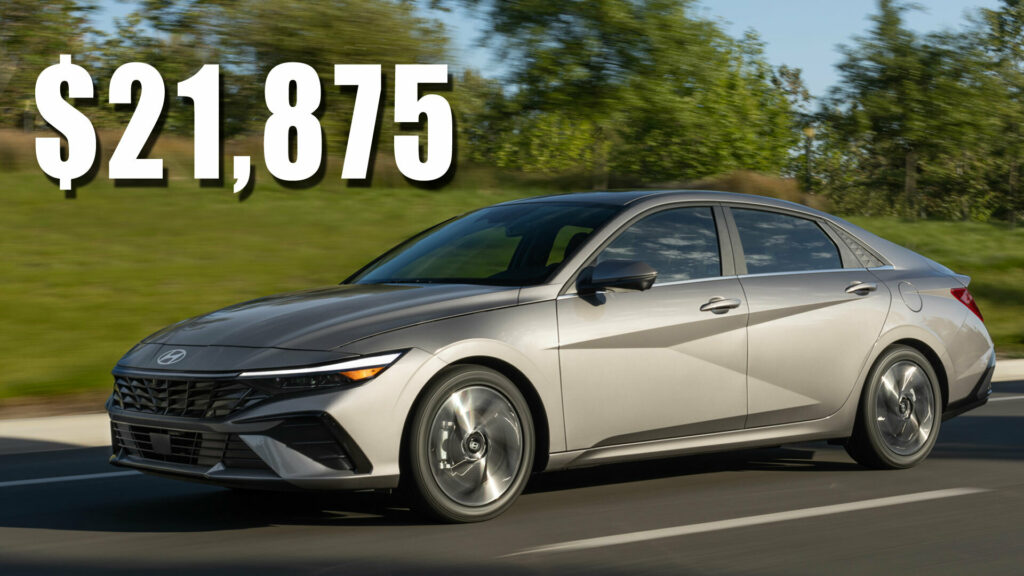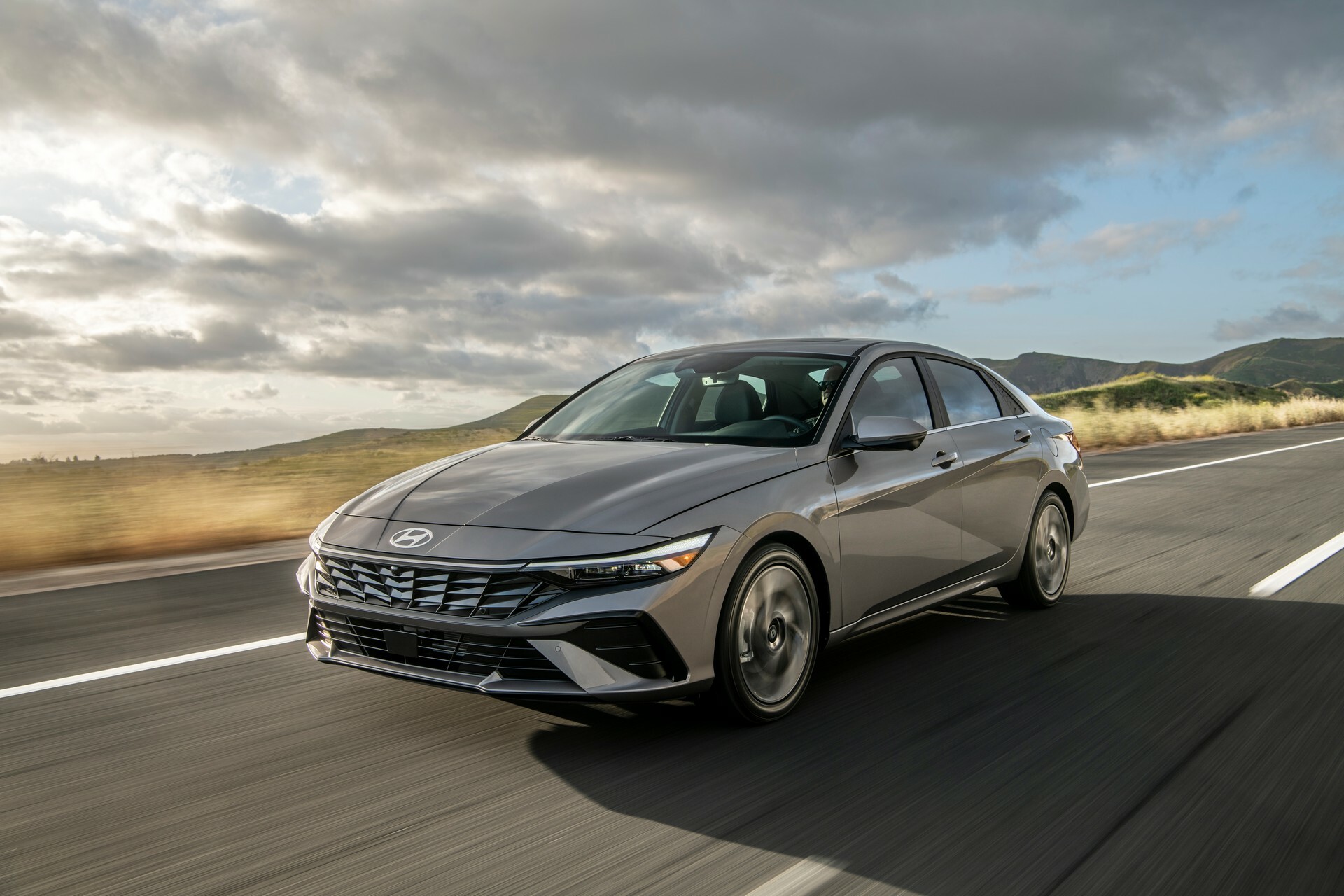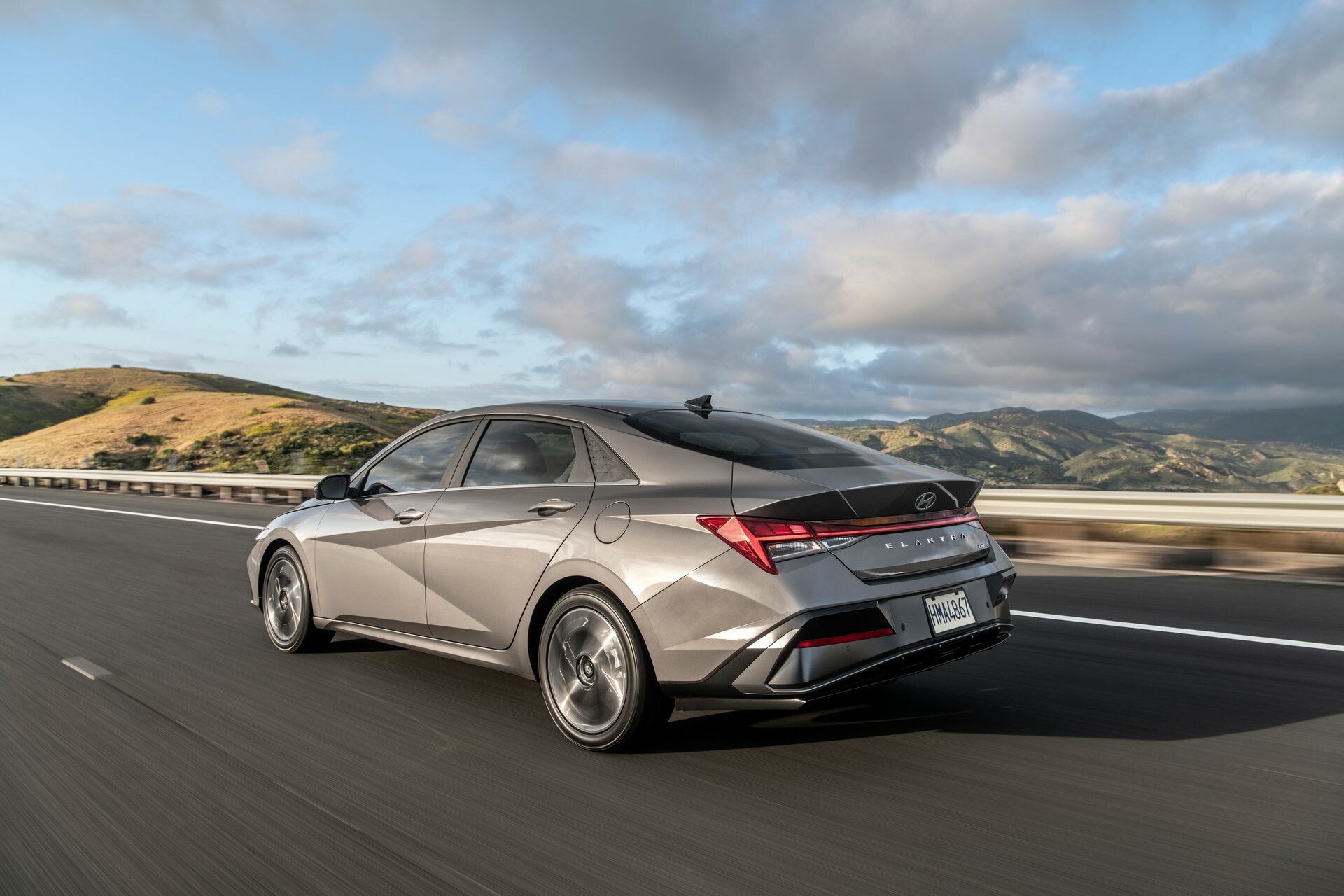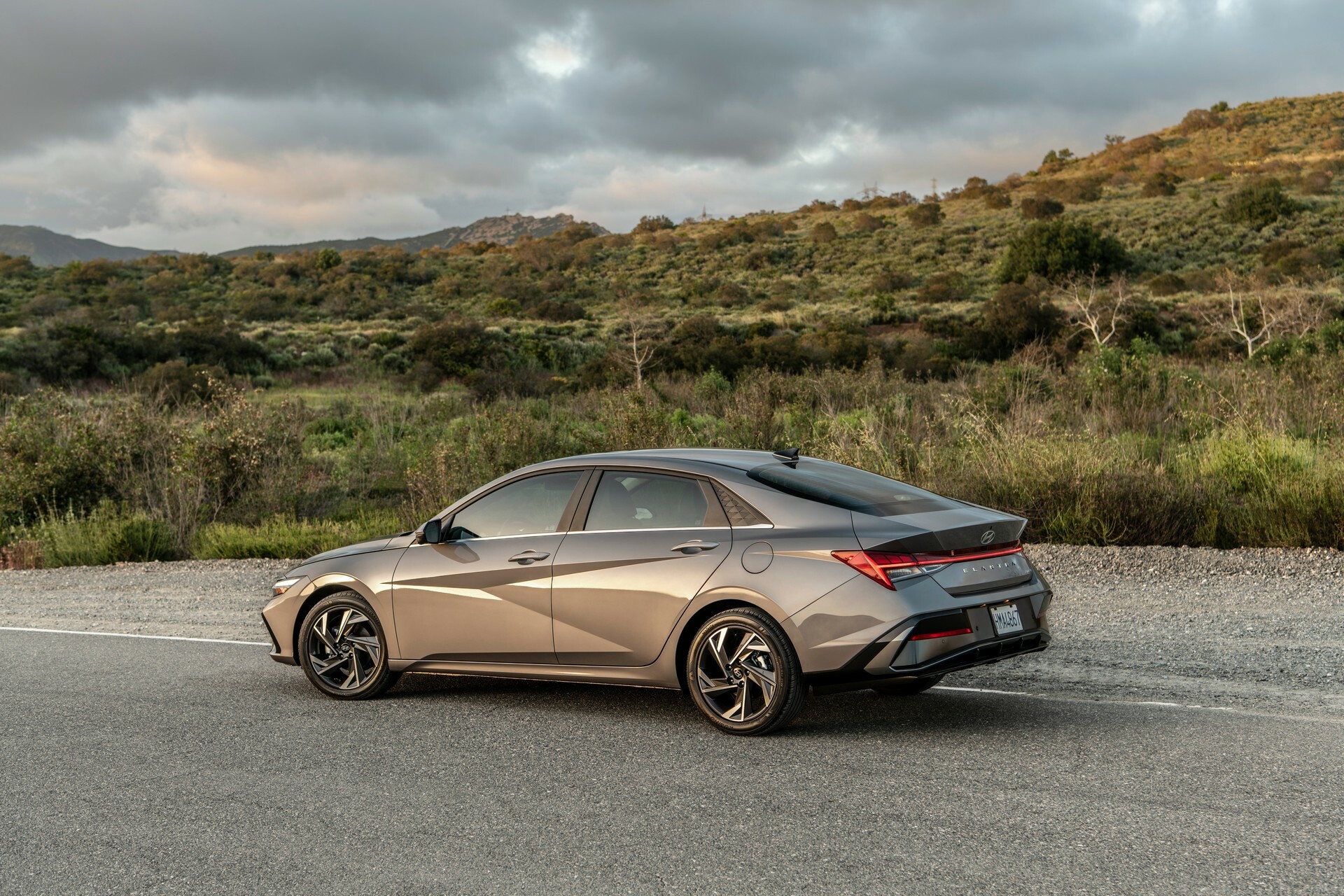- Hyundai has announced pricing and trim changes for the 2025 Elantra.
- The entry-level model climbs $250, while the Elantra SEL has been split into new SEL Convenience and SEL Sport trims.
- The Elantra Hybrid Blue gets a $1,150 price cut, but key features have been eliminated.
Hyundai has announced a handful of changes to the 2025 Elantra and revealed pricing will begin at $21,875. That’s an increase of $250 and it means the model is slightly more expensive than the Nissan Sentra.
So what does that extra money get you? Nothing apparently as Hyundai didn’t mention any updates for the entry-level SE. However, the Elantra SEL has been dropped and replaced by new SEL Convenience and SEL Sport trims.
More: 2025 Hyundai Sonata New SE Trim Drops Starting Price to $27,800
As the name suggests, the SEL Convenience is essentially the old Elantra SEL with the Convenience package. The SEL Sport, on the other hand, features a gloss black rear spoiler, matching mirror caps, and 17-inch alloy wheels.
Buyers will also find aluminum pedals, a leather-wrapped steering wheel, and a black headliner. They’re joined by a wireless smartphone charger and an 8-inch infotainment system. The SEL Sport Hybrid goes even further as it has a 10.25-inch digital instrument cluster and a larger 10.25-inch infotainment system.
The other big news for 2025 is a cheaper hybrid. In particular, the entry-level Elantra Hybrid Blue begins at $25,100 which makes it $1,150 less expensive than last year’s model. That’s a significant drop, but Hyundai has gutted the sedan.
While the automaker didn’t mention any changes, a quick look at the equipment list reveals the company has jettisoned technology and comfort features. As a result, the 10.25-inch digital instrument cluster has been replaced by analog gauges and a 4.2-inch multi-information display. The heated front seats have also been removed, while the 10.25-inch infotainment system gives way to a smaller 8-inch display that lacks navigation.
Last but not least, the Elantra N begins at $33,950 which is an increase of $250. It appears to carryover untouched, so drivers will find a familiar turbocharged 2.0-liter four-cylinder pumping out 276 hp (206 kW / 280 PS) and 289 lb-ft (391 Nm) of torque.
Speaking of engines, mainstream variants have a 2.0-liter four-cylinder with 147 hp (110 kW / 149 PS) and 132 lb-ft (179 Nm) of torque. The N Line goes a step further with a turbocharged 1.6-liter four-cylinder developing 201 hp (150 kW / 204 PS) and 195 lb-ft (264 Nm) of torque.
The Elantra Hybrid also has a turbocharged 1.6-liter engine, but its combined output is a far less impressive 139 hp (104 kW / 141 PS) and 195 lb-ft (264 Nm) of torque. Of course, the hybrid focuses on efficiency and can return up to 54 mpg combined.

























